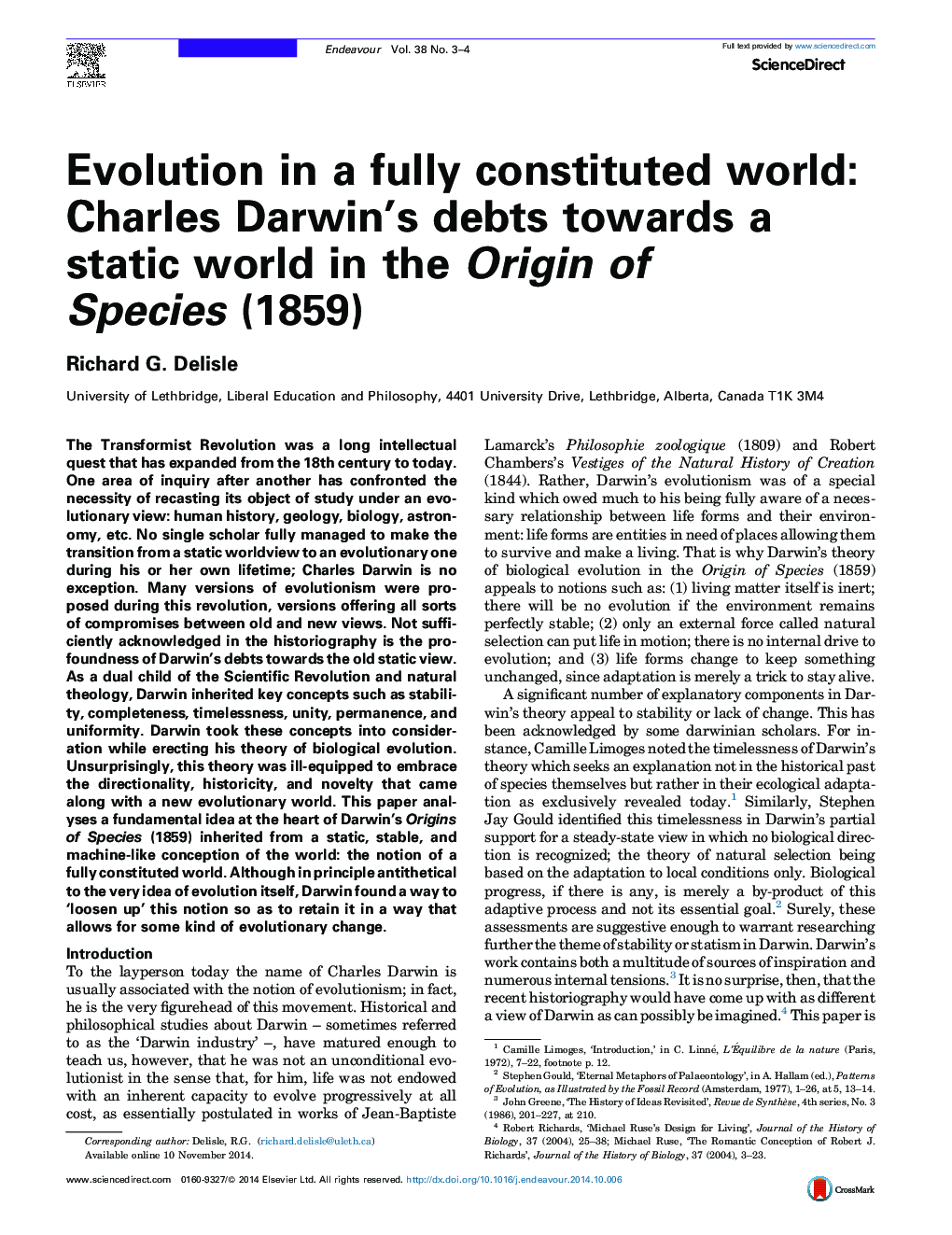| کد مقاله | کد نشریه | سال انتشار | مقاله انگلیسی | نسخه تمام متن |
|---|---|---|---|---|
| 1157600 | 1489966 | 2014 | 14 صفحه PDF | دانلود رایگان |
The Transformist Revolution was a long intellectual quest that has expanded from the 18th century to today. One area of inquiry after another has confronted the necessity of recasting its object of study under an evolutionary view: human history, geology, biology, astronomy, etc. No single scholar fully managed to make the transition from a static worldview to an evolutionary one during his or her own lifetime; Charles Darwin is no exception. Many versions of evolutionism were proposed during this revolution, versions offering all sorts of compromises between old and new views. Not sufficiently acknowledged in the historiography is the profoundness of Darwin's debts towards the old static view. As a dual child of the Scientific Revolution and natural theology, Darwin inherited key concepts such as stability, completeness, timelessness, unity, permanence, and uniformity. Darwin took these concepts into consideration while erecting his theory of biological evolution. Unsurprisingly, this theory was ill-equipped to embrace the directionality, historicity, and novelty that came along with a new evolutionary world. This paper analyses a fundamental idea at the heart of Darwin's Origins of Species (1859) inherited from a static, stable, and machine-like conception of the world: the notion of a fully constituted world. Although in principle antithetical to the very idea of evolution itself, Darwin found a way to ‘loosen up’ this notion so as to retain it in a way that allows for some kind of evolutionary change.
Journal: Endeavour - Volume 38, Issues 3–4, September–December 2014, Pages 197–210
